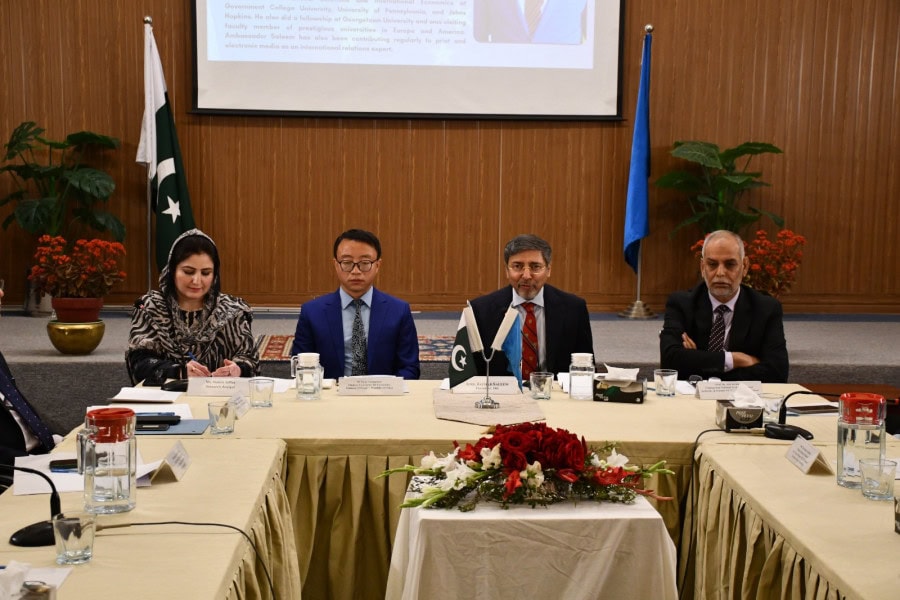ISLAMABAD – At a key consultative dialogue on “Advancing Cooperation in the Transfer of Knowledge and Technology under the Innovation Corridor of CPEC 2.0,” Minister Counsellor of the Chinese Embassy, Yang Guangyuan, stressed the critical role of business-to-business (B2B) collaboration and digital innovation in enhancing Pakistan-China economic relations.
The event, organized by the Institute of Regional Studies (IRS), brought together leading experts, Chinese officials, scientists, and academics to explore ways of advancing technological cooperation, joint research, and capacity-building initiatives under the China-Pakistan Economic Corridor (CPEC) framework. The session focused on the potential of the Innovation Corridor to drive Pakistan’s economic progress through knowledge transfer and cutting-edge technologies.
Yang Guangyuan, reflecting on over two decades of experience, acknowledged the progress made in business confidence but highlighted ongoing challenges such as underutilized industrial capacity and excess electricity generation in Pakistan. He emphasized the need for greater involvement of private Chinese companies to fuel market-driven growth and proposed targeted partnerships and specialized training programs to better integrate Pakistani industries into global supply chains. He also called for an expansion of Pakistan’s 5Es policy by adding efficiency, effectiveness, electricity, policy endurance, and e-commerce to drive economic sustainability.
Ambassador Jauhar Saleem, President of IRS, in his opening address, discussed the achievements of CPEC’s first phase, marking it as a transformative journey for Pakistan. He called for a shift in CPEC Phase 2.0, suggesting that the focus should now be on intellectual infrastructure development rather than just physical infrastructure. He noted that this would pave the way for Pakistan to leapfrog traditional industrialization and move toward a knowledge-based economy. Additionally, Saleem highlighted the importance of equipping Pakistan’s young population with relevant skills and fostering technological growth under CPEC.
Experts also discussed key sectors for collaboration. Dr. Asif Ali, Chairperson of the National Seed Development and Regulatory Authority (NSDRA), emphasized the need for increased cooperation in agriculture, while Prof. Dr. Mumtaz Shah, Project Director of the China-Pakistan Joint Research Center on Earth Sciences, called for modernizing mining techniques to unlock Pakistan’s untapped mineral resources.
Hamza Saeed Orakzai of the Special Technology Zones Authority (STZA) announced the creation of 18 technology zones across Pakistan, employing 25,000 professionals, and confirmed a $300 million technology transfer investment from China to boost Pakistan’s tech ecosystem.
Khalid Taimur Akram from the Pakistan Research Center for a Community with Shared Future also stressed the need for the service industry to address gaps in infrastructure and technology transfer, urging Pakistanis to invest more in language skills to bridge these divides.
The event also saw insights into Pakistan’s growing space sector from Dr. Qamarul Islam, Project Director of the “ICUBE-Qamar” Lunar Mission, and Dr. Mirza Habib Ali from the Pakistan Science Foundation, who highlighted the successful collaboration between Pakistan and China in over 50 joint research projects.
This dialogue marked an important step in reinforcing the technological and knowledge-sharing aspects of CPEC 2.0, signaling a new era of collaboration aimed at ensuring long-term economic growth for both countries.










